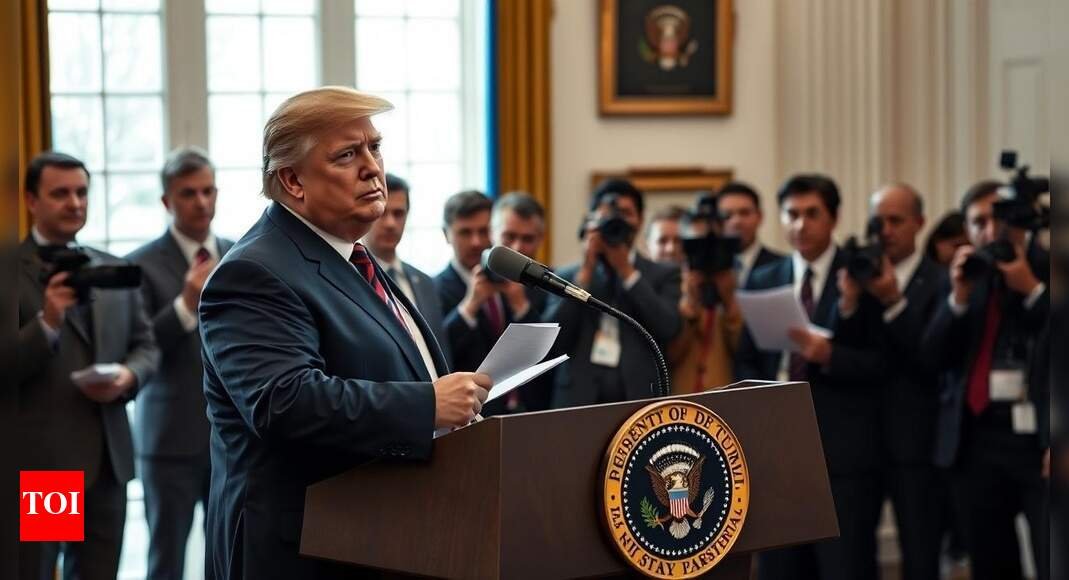Chris Blackhurst’s claim that Britain “simply can’t afford” a wealth tax has sparked fierce debate among Independent readers, who were deeply split over whether taxing extreme wealth is fair, workable, or economically sensible.
Many backed Lord Kinnock’s call for what one commenter dubbed an “obscene wealth tax”, arguing that while wages have stagnated, asset values have skyrocketed.
They claimed that taxing the ultra-wealthy is the only way to rebalance a system rigged in favour of those who make more money from owning than working. Several called for a land value tax too, insisting it’s fairer, harder to dodge, and long overdue.
Others weren’t convinced, with some questioning the practicality of taxing wealth, especially when it’s tied up in private businesses or property. One pointed out: “How do you tax the value of something that can’t be easily sold?” Another warned that entrepreneurs would simply leave the country, taking jobs and investment with them.
There were strong words for Labour, with accusations that the party is chasing populism over sound economics. But just as many readers argued that the real risk is doing nothing – letting inequality grow while public services crumble.
Here’s what you had to say:
Obscene wealth tax
It’s not a wealth tax we need.
It’s an obscene wealth tax.
When simply having money can make more money than earning it can, and a class of super-rich see no shame in possessing such grotesque amounts of wealth, an obscene wealth tax is the only possible counterbalance to the inevitable concentration of money in the hands of an ever-shrinking number that capitalism enforces.
It may not work. But we have to try.
HeHeHitThatTooWellClive
Land value tax
The government should urgently look at resurrecting an idea that nearly became law a hundred years ago – a land value tax. There is so much money tied up in property and, by definition, land that it would be perverse not to tax it.
Rich individuals purchase land as a means of evading taxes, and some landowners have managed to avoid paying taxes for centuries by owning their land through trusts.
Tax it. The land cannot be taken abroad, and it’s a tax that cannot be avoided, irrespective of “who or what entity owns it”. You don’t tax any property itself, you tax the value of the land it sits on. Closing this loophole would raise billions.
flying scot
Do you think the UK should introduce a wealth tax on the super-rich to help fund public services? Share your views in the comments.
Socialism exists only for the rich
I get that large salaries attract the best people for certain positions, but that’s not the problem. The problem is that the top 1 per cent of rich people hold more wealth than the bottom 50 per cent. The gap between the very wealthy and the working class is massive and is only getting wider.
It wasn’t that long ago when one decent working-class wage could buy a house, a car, and still manage to bring up a couple of kids. Socialism only exists for the rich, while the working classes, people with disabilities, and now kids with disabilities are being targeted to raise more money.
Plasticpaddy
How do you value a private business?
The vast majority of people in the UK with personal wealth over £10 million are entrepreneurs or business founders, and almost all of their wealth is in the form of shares in their business. These businesses will mostly be privately held, so there is no market-based price discovery mechanism available to value them.
So, to make this work, the government would, on an annual basis, have to accurately estimate the value of every privately owned business in the UK. They would be backed up in court for decades with appeals, because the value of a business ultimately is “what someone else is prepared to pay for it”.
There is no universally agreed-upon formula.
But long before this became a problem, every single high-net-worth business owner would have re-domiciled their business overseas and left the country for good, taking all the jobs with them, most likely.
sj99
Millionaires remove money from the economy
Money spent on winter fuel allowance, teacher wages, and special needs support stays in the economy because it cannot be saved.
Wealth accruing to millionaire CEOs leaves the economy, usually via tax-efficient schemes in foreign jurisdictions.
Millionaires and billionaires remove money from our economy because they don’t live paycheque to paycheque.
RodyaRaskolnikov
High salaries create tax, not trickle down
Lord Kinnock is certainly right about one thing: a wealth tax will be highly popular among voters.
Taking money off those rich so-and-so’s and giving some to me – what’s not to like?
What its proponents don’t understand is that high salaries attract high taxes, and the Treasury is no doubt grateful. But they don’t have any significant multiplier effect.
Whereas companies set up by rich people (or who have become rich due to the value of those companies) employ workers who pay income tax and NI, generate pensions for retirees, produce goods and services which attract VAT, make profits which incur corporation tax and pay dividends on which dividend taxes are paid.
So there is a large tax multiplier function. Impeding that process is not a good idea.
OldContemptible
Gentrification doesn’t make you rich
The problem is: how do you define wealth?
I am working class and I live in a house in a once down-market neighbourhood that has been gentrified. It’s worth considerably more than I paid for it 50 years ago. It’s an asset that could attract a wealth tax.
But I’m a pensioner on limited means, and there is no way I could afford 10 per cent or even 1 per cent of the value of my asset in a wealth tax every year.
I could move, but stamp duty and other costs make that unappealing – assuming I could find a suitable property for an ageing couple.
How’s that fair?
EnglishCastle
Who are the real wealth creators?
Well, the country has the choice of keeping a regressive tax system and declining public services, or doing something about it.
I see no reason at all why capital gains tax should not be the same rate as income.
Why does this country allow the curious ransom-like threat of the wealthy leaving to dominate fiscal policy?
Who are the real wealth creators? Those who do the work, of course.
Land value tax is another possibility. They can’t take their land and house abroad.
International cooperation would be a big help, of course, so that low-tax regimes cease to exist.
Regardless, wealth distribution has become acutely unequal in recent decades. If nothing is done, the economy will decay, as we’re already seeing.
The rich will always gripe and offer special pleading.
Those who are not rich yet back regressive taxation, are cutting their own throats.
Poulter
Top bosses won’t flee for losing £1m
A good part of the collapse in Labour’s support is that they are intent on avoiding any meaningful tax increases for the rich, while penalising the disabled and others at the bottom of the wealth scale.
It’s no doubt a complex issue, but a couple of things strike me:
1. Are we to believe that if the income of a top boss drops, as a result of extra tax, from say £3m a year to £2m, it will become impossible to find someone competent to do the job at the lower rate (assuming the first scarpers off abroad)?
2. Does the argument that we have to pay top rates to get the best talent bear any scrutiny?
E.g. the main skill demonstrated by water company bosses seems to lie in accruing as much wealth for themselves, with the lowest benefit to anyone else. Is that what we’re paying top rates for?
It’s funny how the same argument somehow never gets used for people who actually do something useful, like care workers.
Eadwine
Wealth doesn’t trickle down
Unfortunately, this is based purely and simply on the belief that wealth trickles down, which is largely untrue.
And the ‘wealth’ does not benefit the country – it is spent and invested elsewhere.
A tax based simply on land ownership and usage, easy to verify by drone or satellite and with clear ownership recorded by the Land Registry, resolves that, and might also put an end to leaseholds…
To suggest that millionaires and billionaires should contribute more, and that all working people be paid a minimum of the living wage, and those unable to work full time be topped up from taxation on those able to pay, should not be contentious.
Topsham1
Popular, but counter-productive
As Colbert said more than 300 years ago:
“The art of taxation consists in so plucking the goose as to obtain the largest possible amount of feathers with the smallest amount of hissing.”
With a wealth tax, a government gets neither feathers nor hissing, as the rich simply leave the country for more welcoming shores.
The idea is popular, but also utterly counter-productive.
paul
The rich pay the tax already
So many lefties think that they are paying too much tax and that, instead, the government should soak the rich.
The reality is that the vast majority of people in the UK are net recipients.
The top 10 per cent of earners pay nearly 60 per cent of tax, and the tax rate in the UK is one of the lowest in Western Europe.
If you want decent services, pay for them.
YetAnotherName
When does wealth creation become a problem?
When someone starts and grows a business, they risk their savings and even their house. They work long hours and only make a profit and grow the business if they provide the goods and services that people want to buy.
They also create jobs that would otherwise not exist and pay taxes that would otherwise not be paid.
At what point does any of this wealth generation become a problem?
Mark
Want to share your views? Simply register your details below. Once registered, you can comment on the day’s top stories for a chance to be featured. Alternatively, click ‘log in’ or ‘register’ in the top right corner to sign in or sign up.
Make sure you adhere to our community guidelines, which can be found here. For a full guide on how to comment click here.
#Readers #torn #wealth #tax #counterbalance #utterly #counterproductive



